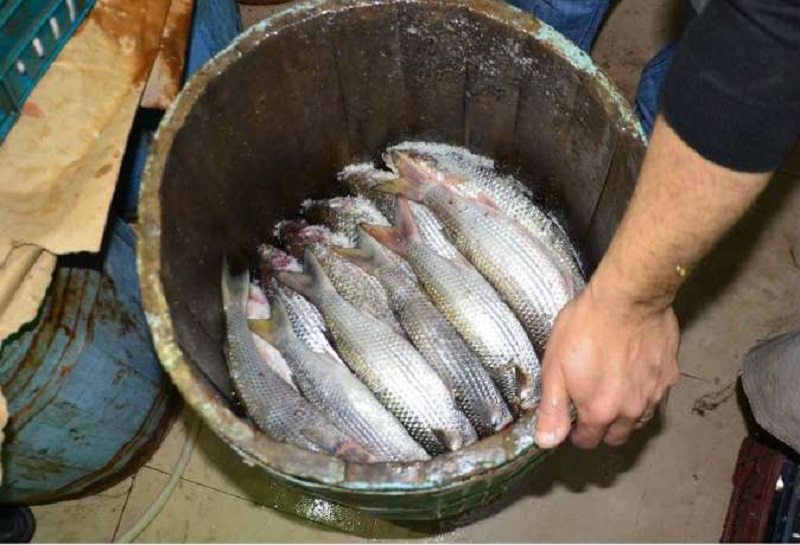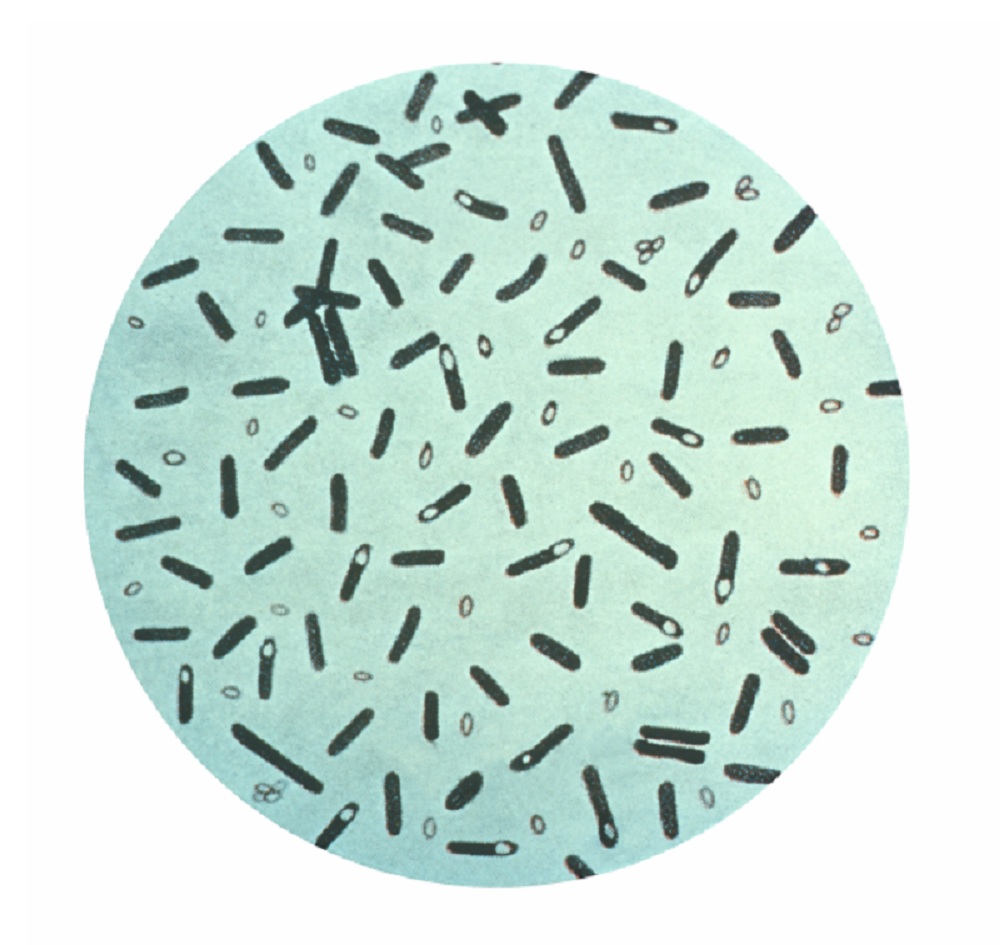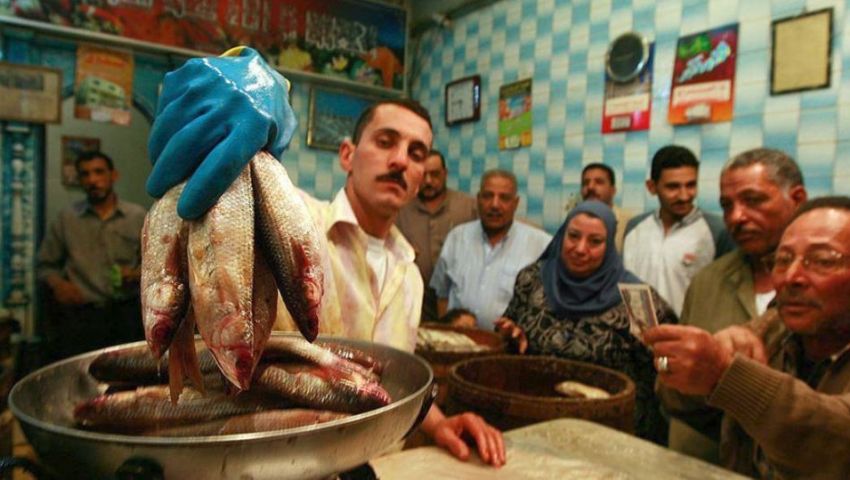In spite of its stinky odor, fesikh (fish) is one of the most famous and ancient dishes in Egypt. It is mainly eaten, along with onions and lemons, on Sham el-Nessim, or the Spring Festival, which dates back to 2700 BCE. Ancient Egyptians believed that offering fish, specially salted ones, to the gods on this day will ensure good harvest and increase the soil fertility.
Nowadays, fesikh is mainly produced in Menoufia Governorate, located north of Cairo. It can be easily prepared by drying well mullet fish “Boorai” in the Sun then preserving it in water containing a proper amount of salt for about one-month-and-a-half. If fesikh is well prepared and stored, it will not cause any harm; however, if dead fish is used, or an improper amount of salt is added, it can cause “Botulism”—food poisoning caused by the bacterium Clostridium botulinum.

Under the microscope, Clostridium botulinum is a rod-shaped bacterium that prefers anaerobic condition, where the environment lacks free oxygen during its growth. The bacteria’s favorable conditions can be met during the wrong preparation of fesikh. In unfavorable conditions, such as high oxygen amount, the bacteria can coat itself with a spore—dormant and non-reproductive structure produced by certain bacteria to overcome the effect of bad conditions; these bacteria can survive in spores for years.
Clostridium botulinum produces neurotoxins that target the nervous system. These toxins stand against the transmission of brain and spinal cord signals to the rest of the body and appear as paralysis, which progresses until it reaches the chest. In this case, the patient dies due to paralysis of the respiratory muscles if a ventilator is not used immediately. Symptoms of poisoning by fesikh start within 12–72 hours; the symptoms are paralysis, vomiting, nausea, and dryness of the mouth. It is advised that those who suffer these symptoms take an antibacterial drug orally and drink large amounts of water until they reach the hospital.

Diagnosis of Botulism can be done by examining a blood or stool sample; however, since these tests take a long time, doctors prefer to inject the patient’s blood into a mouse and wait for the signs of Botulism to appear on it. If the sample examination result is positive, the patient should undergo an immediate gastric lavage or antitoxins should be administrated according to the severity of the case. Nevertheless, researches prove that the majority of people who suffer from Botulism would never fully recover as they will always suffer from fatigue, weakness, and dry mouth.
The Egyptian Ministry of Health warns people every year from eating fesikh to decrease the risk of infection from these bacteria that may be fatal if not properly treated. In 1991, 18 people died after eating fesikh on Sham el-Nessim festival; this record is considered the worst.
If you are one of those who cannot resist fesikh, make sure to buy it from a trusted source and be careful while eating it alas the festival turns into disaster.

References
fondazioneslowfood.com
foodborneillness.com